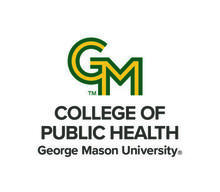Quick Links
Department of Health Administration and Policy
Admissions and Enrollment
HAP Academic Programs
Research and Faculty
Recent Research News
- March 2, 2026Study finds larger learning gains after course redesign using artificial intelligence
- February 26, 2026With funding from the National Institute on Aging, George Mason health economist Jeah Jung will evaluate how Medicare Advantage’s new non-medical benefits like food and transportation impact health care use and patient outcomes.
- February 4, 2026The pitfalls of one-size-fits-all AI mental health treatment.
- February 4, 2026New research warns that AI-driven antidepressant treatment may overlook the needs and experiences of African Americans with depression.
- February 3, 2026Financial incentives alone can’t solve South Korea’s OB/GYN shortage, reveals study.
- February 3, 2026The first nationwide analysis shows incentives reshaped staffing patterns, but left many areas critically underserved.
- February 2, 2026Youth mental health researcher Hua Min created an easier way to find and analyze publicly available data to advance youth mental health research and outcomes.
- January 20, 2026Collin Terling, United States Air Force veteran and health administration student, says George Mason’s forward momentum as an institution resonates with his goals for personal growth.
- January 13, 2026Health Administration and Policy faculty co-author a new chapter in The Palgrave Encyclopedia of Disability, offering a comprehensive picture of cannabis use among people with disabilities and recommendations for future research.
- January 6, 2026Experts sound alarm as report reveals more than 40 million Americans turn to ChaptGPT for medical advice
- December 16, 2025More than 80% of 25-34-year-olds and more than 50% of respondents across all age groups already use AI for mental health care.
- December 8, 2025Kelly Kogan, PhD Health Services Research ’23 and Master of Nutrition ’21, applies her George Mason expertise at the intersection of nutrition and data science as a nutritionist for the U.S. Department of Agriculture, collecting and analyzing data for What We Eat in America, the dietary intake survey that captures a detailed portrait of Americans’ food habits.









